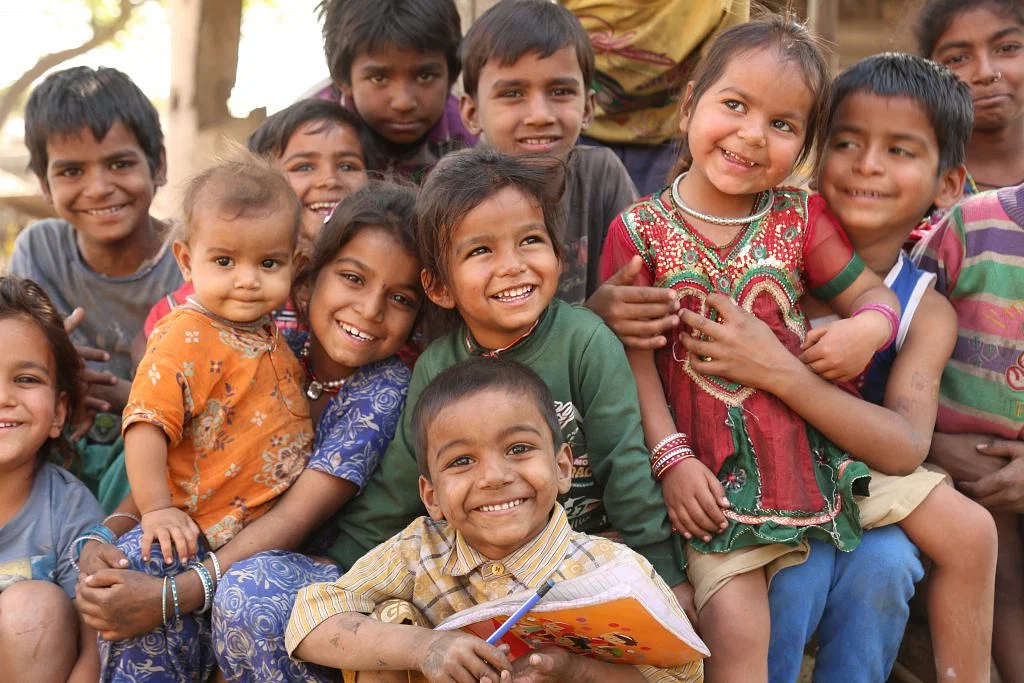In the heart of Madhya Pradesh, an inspiring story of resilience, dedication, and transformative change is unfolding, thanks to the efforts of Veerendra mishra, an IPS officer, and his non-profit organization, Samvedna. This incredible journey is about empowering the marginalized Bedia community, traditionally engaged in inter-generational sex work, with the gift of education.
In 2007, Mishra’s life took a meaningful turn when he encountered the Bedia community living in Raigarh district. This community, across generations, had been consigned to a life of sex work, with young girls often entering this profession with their community’s consent. For Mishra, it was a revelation of the systemic stigma and discrimination this community endured, with limited access to education and improved living conditions.
Upon visiting a Bedia village, Mishra’s question about contraceptives opened the door to a significant awakening. He discovered that while children from the Gujjar community were attending school, only a handful of Bedia children went to school. Discrimination was rampant, with Bedia children not even allowed to share water sources with other students.
The year 2002 marked the inception of Samvedna, a non-profit initially focused on the Bhopal slums but later redirected its efforts toward the Bedia community. By 2010, Mishra had successfully persuaded the family of a 14-year-old Bedia girl to allow her to attend school, an extraordinary feat given the community’s deeply rooted traditions. The condition was that 12 other children from the Bedia community should also be given an opportunity for education.
In no time, Mishra had brought 13 children to Bhopal, with seven of them continuing their education in the first year. They stayed in government hostels and studied in government schools, marking the start of an incredible journey. Presently, over 70 children from different villages are pursuing education, and their progress is nothing short of astonishing.
Veerendra Mishra looks back with immense pride, remembering the first girl from this initiative who not only completed her BTech and MTech but also reached the final interview stage of the UPSC selection, showcasing the immense potential of this marginalized community.
Over the years, Veerendra Mishra, alongside Samvedna, has impacted the lives of 5,500 children across 60 villages in six districts of Madhya Pradesh, including Bhopal, Rajgarh, Guna, Raisen, Vidisha, and Sagar. Their work is firmly rooted in grassroots-level engagement, ensuring ongoing education in local schools and colleges.
However, the path to transformation is laden with challenges. There’s an inherent trust deficit within the community toward government institutions. The complexity of family dynamics, especially the lack of records of biological fathers due to the nature of the profession, further complicates efforts. Mishra emphasizes that this work isn’t about ‘rescue,’ but about offering children the opportunity for a brighter future, building their self-confidence and encouraging them to move beyond their village boundaries.

Mishra’s work isn’t limited to grassroots efforts. His experiences as part of two United Nations missions in Kosovo and Bosnia, as well as his time as a Hubert Humphrey Fellow in Public Policy and Trafficking at the University of Minnesota, provided him with insights into human trafficking. He authored a book, “Combating Human Trafficking – Gaps in Policy and Law,” and presented over 40 sessions on the subject. India, he notes, is a hotspot for human trafficking, with three roles: as a place of origin, transit, and destination. Mishra advocates for a broader perspective on the issue and believes in focusing on prevention, reintegration, and rehabilitation rather than just curbing trafficking.
In light of these beliefs, Mishra founded the RACE (Research, Advocacy, and Capacity Building against Exploitation) Lab, a division of Samvedna and India’s first anti-human trafficking lab. RACE operates as a think-tank, prioritizing evidence-based research, advocating for policy changes, and enhancing stakeholder capacity to create an ecosystem that addresses and prevents human trafficking. His “CCS model” aims to improve conceptual literacy, clarify the roles of those working in this field, and develop specialized skills to combat human trafficking effectively.
Mishra’s continued dedication to the Bedia community is yielding encouraging results. Education and livelihood programs have already brought about significant shifts in their mindsets. He envisions a future where children aren’t compelled into prostitution by their own families and are free to dream big and aim high. The Rai, a traditional folk dance of the Bediyas, is another cultural aspect Mishra hopes to see restored to its former glory, free from its current stereotypical portrayal.
Veerendra Mishra’s journey is a testament to the transformative power of education, dedication, and empathy. His work exemplifies the profound impact that the right interventions can have on marginalized communities, and it serves as a shining example of what’s possible when committed individuals work tirelessly to create positive change. In a world filled with challenges, stories like Mishra’s inspire hope and remind us of the extraordinary potential for transformation.
Also read:
Empower, Educate, Elevate: Komal Dixit’s Journey from Science Student to a Digital Marketing Maven
Dreams to Dominance: Aaquib Wani’s Remarkable Impact on Indian Sportswear Design
Check out our section dedicated to India, where we celebrate inspirational changemakers, explore innovation, entrepreneurship, and sustainability, and delve into the impact of social and governance initiatives. From startups to Art & Culture, Education, Sports, Travel, Health, Lgbtqia+ spotlights, Reading & Books, Entertainment and lifestyle, our insightful articles provide valuable insights for small businesses and curious minds alike.
